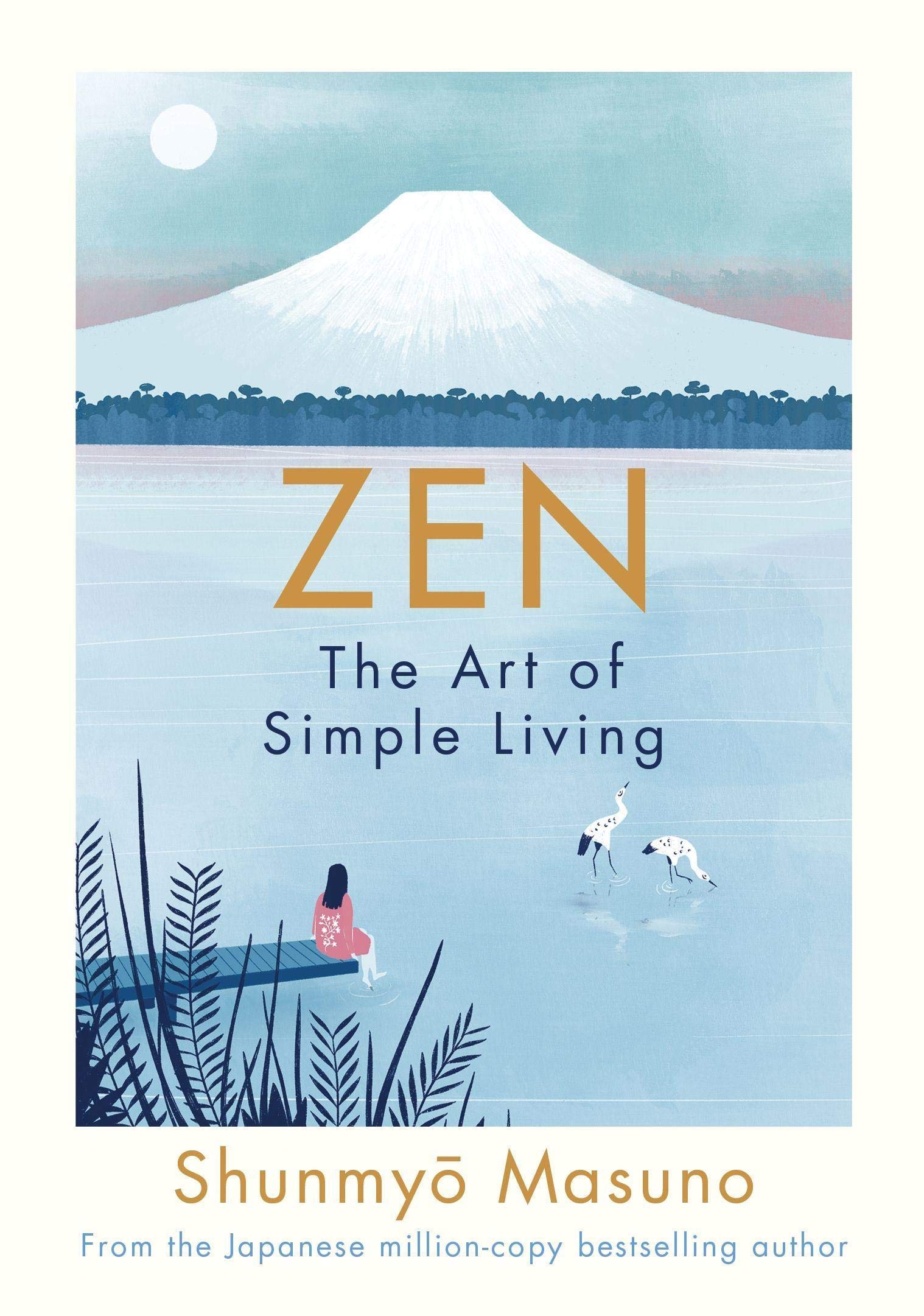
Zen: The Art of Simple Living
Shunmyō Masuno
Publisher
Penguin Random House
Publication Date
4/18/2019
ISBN
9780241371862
Pages
162
Categories
About the Author

Shunmyō Masuno
Questions & Answers
The book advocates for a simpler, more mindful lifestyle by emphasizing subtle shifts in habits and perspective. Key practices include:
- Mindfulness in Daily Activities: Engage in daily tasks with mindfulness, like lining up shoes, organizing desks, and savoring morning air.
- Detachment and Simplicity: Discard unnecessary possessions and attachments, and focus on what is essential.
- Mindful Eating: Practice the "Five Reflections" during meals, savoring food with gratitude and mindfulness.
- Zazen Meditation: Regular zazen practice helps in achieving a clear mind and deep reflection.
- Nature Connection: Spend time in nature, creating small gardens or connecting with natural landscapes.
- Mindful Communication: Serve others, focus on their merits, and avoid unnecessary conflicts.
- Present Moment Awareness: Embrace the present moment, be grateful for every day, and avoid worrying about the future.
- Self-Reflection: Use favorite words or phrases for self-reflection and to cultivate a simple mindset.
By integrating these practices into daily life, the book encourages a simpler, more mindful, and ultimately happier existence.
Zen philosophy plays a crucial role in guiding individuals towards a fulfilling life by emphasizing mindfulness, simplicity, and self-awareness. It encourages individuals to live in the present moment, appreciate the natural world, and cultivate inner peace. Unlike traditional religious practices, Zen does not focus on rituals, dogma, or adherence to specific rules. Instead, it emphasizes direct experience and personal insight. Zen teaches that enlightenment is accessible to everyone and can be achieved through meditation, mindful living, and the cultivation of a clear, open mind. This approach allows individuals to find meaning and purpose in their daily lives, fostering a sense of fulfillment and contentment.
The book encourages readers to cultivate confidence and courage through self-discovery and a shift in perspective by emphasizing the importance of understanding and embracing one's true self. It suggests practical steps such as:
- Discovering Another You: Uncover the inner protagonist within, free from labels and preconceived notions.
- Embracing Work: View work as a form of practice (samu) rather than labor, finding joy and growth in daily tasks.
- Not Blaming Others: Take responsibility for your actions and opportunities, fostering a positive outlook.
- Cherishing Yourself: Carry an amulet as a reminder to protect and cherish your own essence.
- Thinking Simply: Focus on the essentials, appreciating the beauty in simplicity.
- Noticing Changes: Develop awareness of subtle shifts in mind and body to refine your understanding of self.
- Appreciating the Present: Live in the moment, recognizing the value in every day.
- Believing in Yourself: Cultivate self-confidence by recognizing your potential and taking action.
- Moving Forward: Instead of worrying, take action and trust in your abilities.
- Building Relationships: Focus on deep connections rather than superficial ones, valuing meaningful encounters.
- Accepting Reality: Embrace the present and prepare for the future with a calm mind.
- Seeking Wisdom: Learn from others, especially those with experience, to gain insight and guidance.
- Connecting with Nature: Experience the beauty and interconnectedness of the natural world to find peace and clarity.
- Appreciating Ancestors: Recognize the value of your heritage and the lives of those who came before you.
The book emphasizes key elements of human interaction and communication that focus on mindfulness, simplicity, and authenticity. It suggests that by serving others, cultivating gratitude, and demonstrating feelings without words, one can reduce confusion and worry. The practice of "ichigo ichie," valuing each encounter, and focusing on others' merits fosters deeper connections and reduces the burden of superficial relationships. Additionally, the book encourages detachment from words and opinions, not fixating on gain or loss, and not being swayed by others' opinions, which helps in maintaining a clear mind and reducing internal conflicts. By embracing these principles, the book suggests that individuals can navigate life with greater ease and clarity.
The book encourages readers to appreciate the present moment and live life to the fullest by emphasizing the importance of mindfulness and simplicity. It suggests practical steps such as:
- Mindfulness Practices: Engaging in daily mindfulness practices like zazen, a form of seated meditation, and standing practice, which helps in focusing on the present moment and reducing stress.
- Simplify Your Life: By decluttering your physical space and possessions, you can simplify your mind and reduce distractions.
- Appreciate Nature: Spend time in nature, whether it's a small garden or a walk in the park, to connect with the natural world and find peace.
- Gratitude: Practice gratitude daily, acknowledging the beauty and blessings in life, even in ordinary moments.
- Live in the Moment: Focus on the present rather than worrying about the past or future, as the book suggests through the concept of "be here now."
- Cultivate Self-Confidence: Believe in your abilities and potential, and take action instead of worrying about the outcome.
- Appreciate Life: Recognize the preciousness of life and make the most of every moment, as the book emphasizes through the concept of "cherish being alive, every single day."